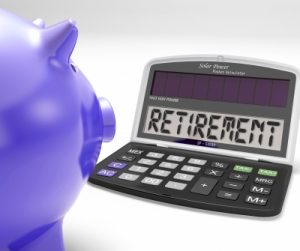Many people dream of retiring at the earliest possible date with the expectation that their investments will provide them with a steady income for the next few decades. But as soon as they put in their papers and go to collect their last paycheck, they might be surprised at how much of a chunk of their retirement income Uncle Sam takes out. No matter how you invest your money, you can be sure that taxes will take away a considerable portion of your personal finances. There are a few ways to mitigate these losses, depending on how you invest your money and how much liquidity you want on hand for retirement.
Individual Retirement Accounts

In order to minimize the tax bite upon retirement, you can open a Roth IRA, instead of a traditional IRA. In a Roth, you pay taxes on the money upfront but the gains are tax-free. So, if you prefer, you can pay the taxes upfront on the money and if the gains are large you could come out ahead by not paying taxes on them. Should you rather save on taxes while you are working you might prefer a standard IRA. An investment adviser will be able to help you decide which choice is better for you.
Real Estate
When it comes to participation, no investment choice has more numbers on its side than real estate, statistics show the majority of Americans choose to put their money into their homes before putting any into a stock market portfolio. While there are risks to this enterprise — a home owned today took five years to recover from the beating its price took in 2008 — it is by far the most popular and the most in-demand since the American dream for decades has been to own their own home. The problem with real estate is that there are major costs involved. You will need to pay the state property tax for the property itself, the system by which most public schools in the United States are financed. You will also be liable for maintenance, upkeep, insurance, etc. The good news is that state taxes as well as the mortgage interest paid to a bank or credit union are deductible on your Federal income taxes. But this just means that you get a deduction for a part of the expenses. So if you pay $1000 in interest and you are in the 15% tax bracket you might save $150 in taxes but that still means you are paying a net of $850 in interest.
Stocks And Markets
The taxes that you will pay on any money that you earn through an investment in the stock market will usually come from one of two different sources. The first is the capital gains tax and the second is the dividend tax. The capital gains tax occurs whenever you sell an asset and create a profit, whether it is a single stock or a thousand Treasury bonds. The American Taxpayer Relief Act of 2012, or ATRA, enacted Jan. 2, 2013, made some capital gains tax laws permanent. ATRA increased the top tax rate on long-term capital gains to 20 percent for high-income earners but left it at 15% for most ordinary income earners while creating an opportunity for low-income earners in the two lowest brackets to pay no tax on capital gains at all. See A look at the many capital gains rates for more information.
As far as dividend taxes individuals in the 25 – 35% tax bracket will get a 15% ding on whatever profits they get from dividends, rather than their regular income tax bracket. One way to avoid this tax number is to keep your stock in a qualified retirement plan (IRA or 401k etc.) with dividend reinvestment. Individuals with more than $400,000 in taxable income will be charged 20% while those in the 10 – 15% tax bracket will not owe any taxes on dividends.
See Also:
- Trends: Estate Planning Changing
- Protect Yourself from the Effects of FATCA
- Tax Deferred Retirement- 401k, IRAs and More
- Annuities for Retirement
- The Truth About Annuities
Resources:
Image courtesy of [image creator name] / FreeDigitalPhotos.net




